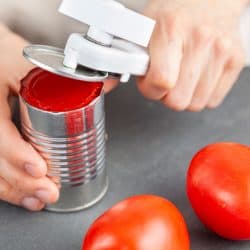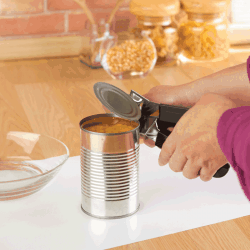When was the last time you looked at your can opener? Usually, it's a quick-use kind of thing. A can opener doesn't really get too much attention, but it needs a good cleaning every now and then. The dishwasher seems like a good place. It cleans everything else fast and quickly. But can you put your can opener in the dishwasher? We have found the best ways to get your can opener sparkling clean.
You should never put your can opener in the dishwasher. The wheel in the opener will eventually rust when exposed to all the water and detergent, causing the need to buy a new one. Sure, some on the market say safe for dishware use, but unless specified, most can openers are not dishwasher safe, and you will ruin it in your dishwasher.
This article will discuss several options to keep your can opener clean instead of putting it in the dishwasher. You will learn a few different ways to care for your can opener and keep it at its peak performance.
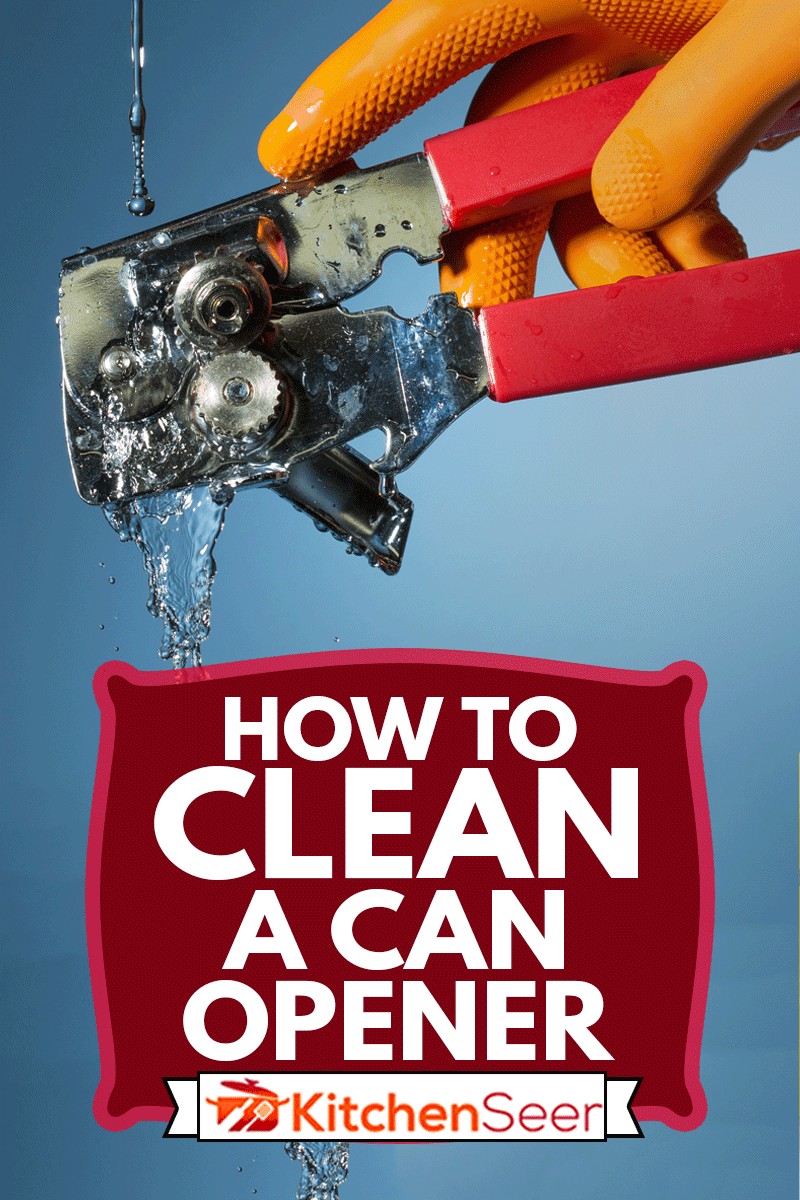
How to Clean a manual can opener
In restaurants, health inspectors check the can openers for cleanliness. It's an important tool to keep clean. For example, when opening a can of tomato puree, the mixture can seep up over the cover when opening and getting inside the opener where the wheels are.
The best way to clean a manual can opener is as follows:
- Soak the end of the opener in vinegar for at least 20 minutes up to an hour. This helps break up all the grime, making the scrubbing less work.
- Remove the opener from the vinegar and use a small brush, such as a toothbrush, to scrub the most used and dirty areas. It's essential to pay close attention here- make sure you clean all the moving parts.
- Give it a good rinse.
- Be sure to dry completely so the parts won't rust.
- Some like to give the opener a quick spray of oil to keep the parts moving well. Keep reading, as we'll discuss lubrication later in this post.
How to Clean an Electric Can Opener
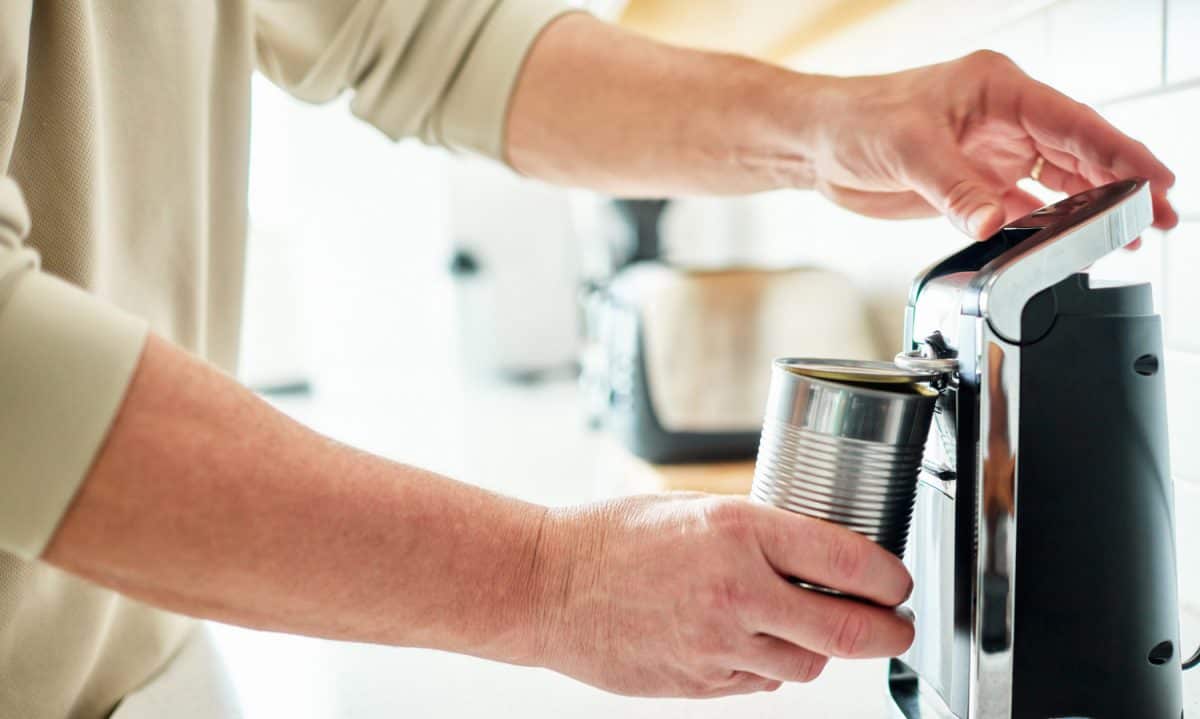
One of the most critical parts of cleaning the electric can opener is to make sure it is unplugged. Water and electricity don't mix; consider safety first! It's a good idea to get into the habit of wiping down this kind of opener after every use. It will help reduce the amount of build-up. A little soap and water go a long way here.
Remove the wheel and blade carefully and soak in some vinegar or soapy water. Make sure the parts are dry before putting them back. The final step, drying, is crucial to prevent rust. It's a good idea to use the manual you were provided and follow those exact directions for disassembling, cleaning, and reassembling because it may vary based on your specific can opener.
How Often Should You Clean A Can Opener?
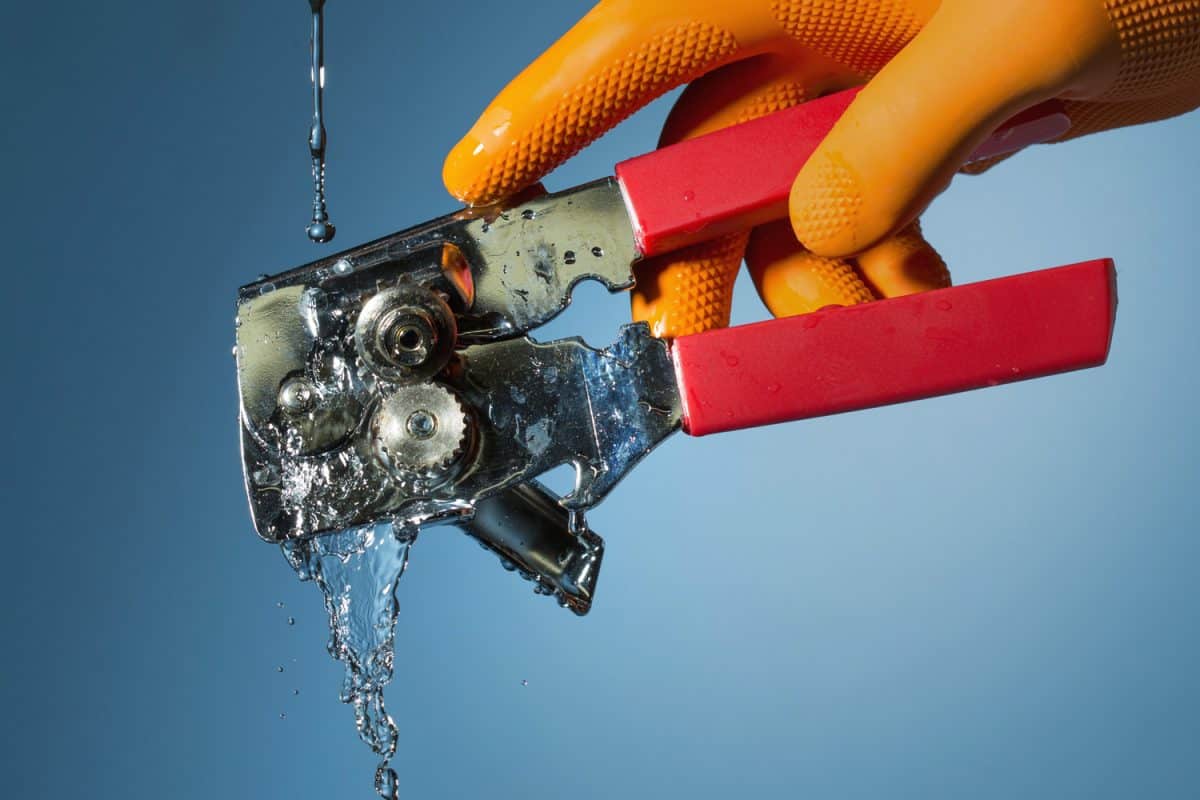
This really depends on personal choice and usage. A few general guidelines to keep in mind are:
- Clean the opener when it gets dirty. This is usually after opening a can, and the contents have spilled. A quick rinse under the water will keep the opener reasonably clean.
- Monthly is an excellent time to go through and so a quick clean of the opener and other appliances.
- Finally, it really depends on how much you use your opener. It may need to be cleaned less because it is not used frequently, while for other openers that are used daily, those might want to be cleaned weekly instead of monthly.
Maintaining the Blade
Another maintenance task is replacing the blade if needed on the electric can openers if yours has one. As the blade dulls, it can make cutting the cans more difficult. This puts extra work on the opener. A fresh blade ensures a quick, clean job.
Is It Okay To Use A Rusty Can Opener?
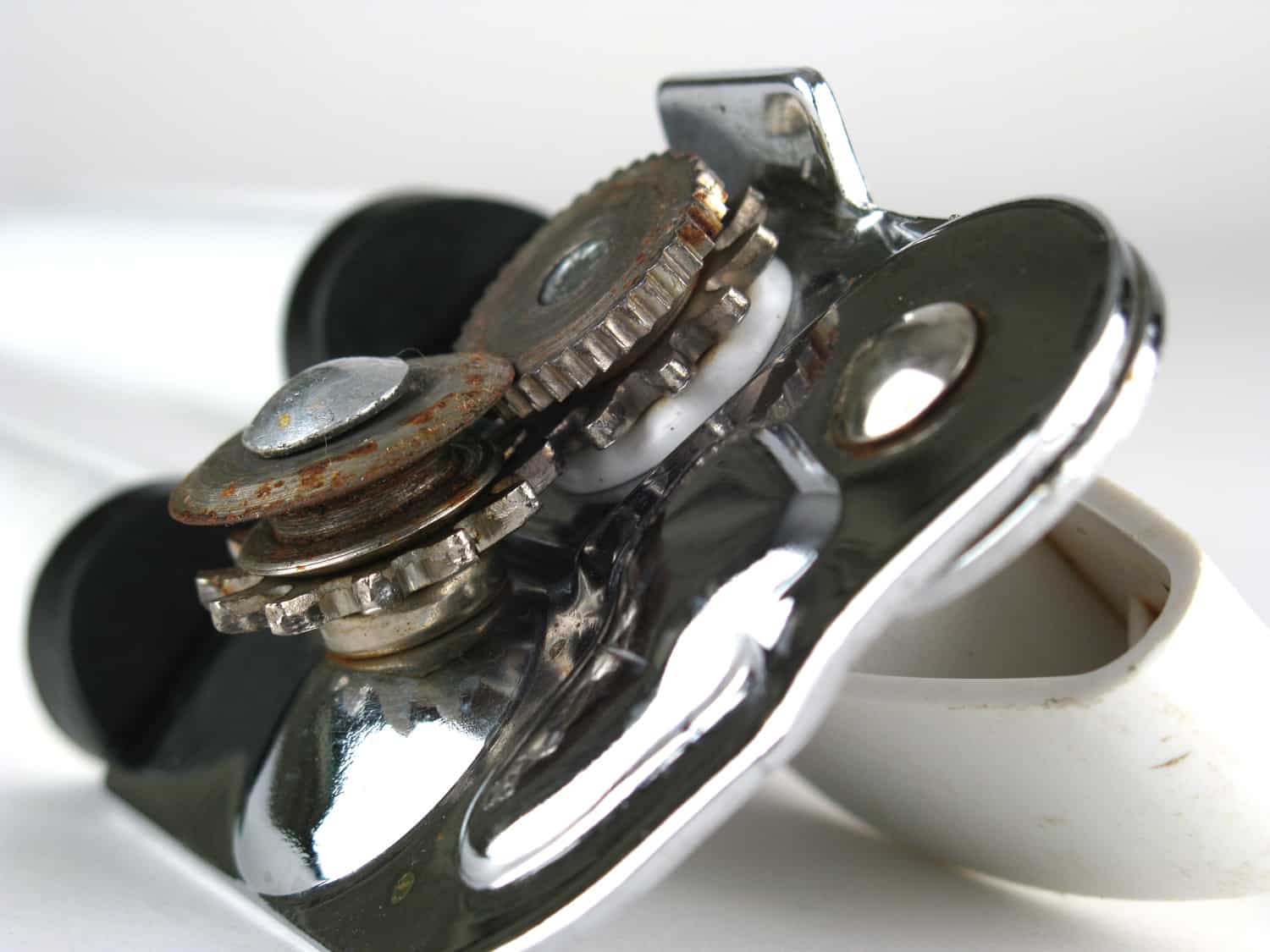
A rusty can opener can be detrimental to ingest some of the rust off the opener that has fallen in your food. Rust can cause stomach issues or other complications. The rust in your food can also change the flavor, making your dinner taste different or wrong. Another issue that can arise is if you cut your finger on the lid and the rust enters your bloodstream, causing more severe health issues.
Now, a little rust in your body is not dangerous. Iron is necessary for the body, but large amounts can be toxic. The idea of eating rust off a dirty can opener is, overall, unhealthy, so keep yours clean.
How Do You Lubricate A Can Opener?
Do you need to lubricate a can opener? Well, if you look at an opener, there are usually two wheels or gears that turn together to open the can. If these wheels become rusted or too dry, it can be tough to turn the opener. Lubrication will help those wheels get spinning smoothly again. Also, lubrication can extend the life of your can opener.
Wax Paper
First, one of the most accessible ideas is to use a piece of wax paper to clean and lubricate the opener. Even if you religiously clean your opener, it doesn't hurt to go a step further. Fold a sheet of wax paper a few times, then roll the sheet through the wheels and gears, turning the usual way. The paper should have removed what was left behind even after cleaning and is now lubricated.
WD-40
Also, WD-40 is always a good option for the lubrication of any appliance. WD-40 offers complete cleaning and lubrication of your can opener. The WD-40 also ensures that the can opener is left squeaky clean. Like cleaning it with the vinegar, all you need to do is apply the DW-40 on the opener and let it soak. Then, use a toothbrush and rag to get into all the hard-to-reach crevices. It cleans rust and gunk, oils, and prevents rust as well. WD-40 is the best choice for complete can opener care.
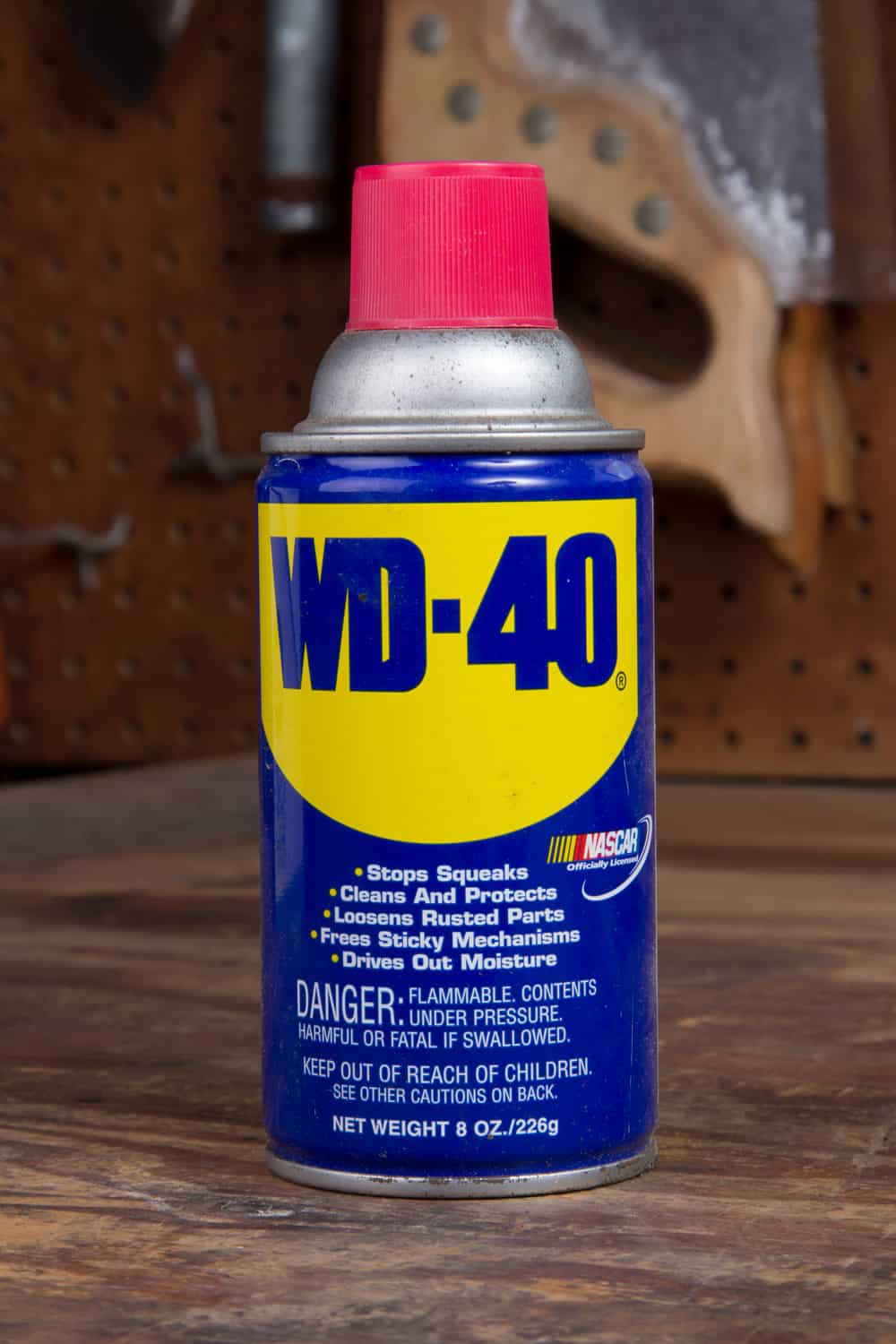
In Closing
Keeping the tools in your kitchen is essential, especially since the majority of these items are touching your food. Your can opener is only one of the tools used almost every day that usually gets overlooked. Also, it is essential to keep your tools in good working order. You clean and maintain your car, and you should clean and maintain your kitchen tools to ensure top cleanliness and quality.
Here are two other questionable dishwasher safe items:
Are Sieves Dishwasher Safe? Here's How to Clean Your Sieve
Are Blender Bottles Dishwasher-Safe?

![Process-of-opening-the-can.-What-Are-The-Best-Can-Openers-For-Seniors-[6-Can-Openers-To-Consider]](https://kitchenseer.com/wp-content/uploads/2021/05/Process-of-opening-the-can.-What-Are-The-Best-Can-Openers-For-Seniors-6-Can-Openers-To-Consider-250x250.png)
![Electric can opener on a canned food, How To Use A Kitchen Mama Can Opener [Quickly & Easily]](https://kitchenseer.com/wp-content/uploads/2022/10/Electric-can-opener-and-canned-good-250x250.jpg)
